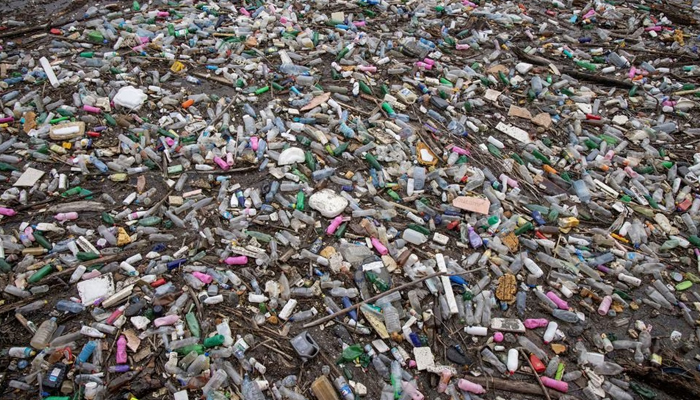Plastics can produce 'petrochemical products'
Experts are putting efforts to utilise chemical bonds to explore new forms of energy from plastics
March 14, 2023

As researchers around the world are finding ways to turn transform plastics into useful products, the wasted plastics have the ability to become a major source of fuel which contain a rich form of energy and certain kind of chemicals, believes Professor Erwin Reisner, professor of energy and sustainability at the University of Cambridge.
Despite their importance and the lasting chemical bonds of plastics, only 10% of plastics are recycled out of seven billion tons ever created.
Plastics programme manager for the Ellen MacArthur Foundation, Dilyana Mihaylova, said that billions of dollars worth of important plastic or related materials are wasted as our economies make and waste things, rather than recycling the waste material.
According to BBC, more than 350 million tonnes of plastic — which roughly weighs the same as human beings — annually out of which 85% is wasted in the environment.
However, recycling plastic through the mechanical process can decrease the quality of plastic products with the passage of time.
The plastic recycling industry does this by adding different chemicals that can turn the material into a raw form. The process may also be used for making fuel similar to fossil ones.
Despite efforts, the process attracted criticism. Mihaylova thinks that humanity cannot rely on fuel conversions from plastics to cope with the problem of plastic pollution.
Can solar power systems be an answer to the problem?
The team led by Prof Reisner was able to convert CO2 and plastics into a component called Syngas through a solar-powered process. Syngas is regarded as an important part of sustainable fuels. The process also produces glycolic acid — widely used in cosmetics.
Syngas is currently being produced at the rate of 600 million tonnes mainly from fossil fuels according to Prof Reisner.
If we can make Syngas with solar energy, he said, we can access almost all of the petrochemical industry and make it sustainable.
Their team aims to build the system over the next five years — a solar-powered recycling plant — to produce more complex products and are hopeful for their contribution to the field of plastic recycling.
He said that the process works at normal temperature and pressure which starts when it is exposed to sunlight. It is a clean process, he added.
This is the first time that the conversions have been carried out in a single transformation process which adds value to the process and takes us closer to commercialising the technology, according to Prof Reisner. He also added that unrecyclable waste of plastics can also be handled in this process.
Dr Victoria Bemmer, a senior research fellow at the University of Portsmouth opined that nature has found ways through bacteria to break down polymers and plastic compounds which can be slightly changed in structure as per our requirement.
It is estimated that the production of plastic worldwide is likely to triple by 2060. There are experts who are determined to recycle the produced plastic however, other people argue that this may not suffice in tackling the pollution issue.









